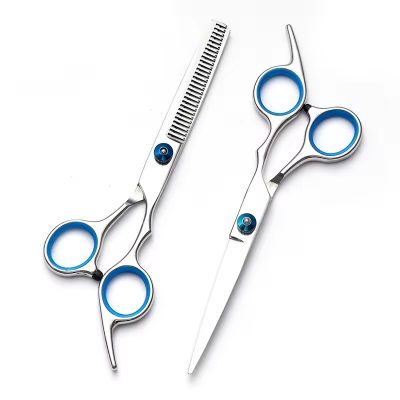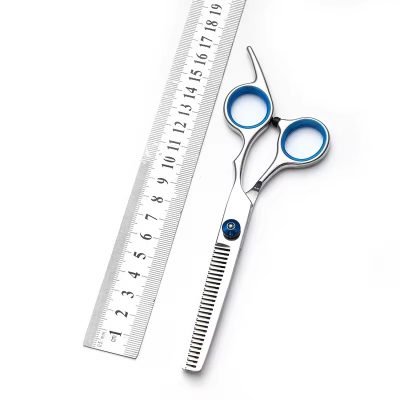Introduction
Choosing the right hair scissors is crucial for achieving precise cuts and maintaining the health of your hair. With so many options available, it can be challenging to know which pair is best suited for your needs. In this blog post, we’ll provide essential tips for selecting the right hair scissors, whether you’re a professional stylist or an at-home hair cutter.
Consider the Blade Type
The blade type is one of the most important factors to consider when choosing hair scissors. As discussed in previous posts, different blade types are suited for different cutting techniques:
- Convex Blades: Ideal for advanced cutting techniques and precision work.
- Beveled Blades: Versatile and durable, suitable for various cutting styles.
- Micro-Serrated Blades: Provide extra grip on hair, perfect for blunt cuts and bobs.
- Texturizing Blades: Designed for removing bulk and adding texture.
Choose the blade type that best matches your cutting style and the hairstyles you plan to create.
Evaluate the Handle Design
The handle design affects comfort and control during cutting. There are three main handle designs to consider:
- Classic (Opposing) Handle: The simplest design, with symmetrical handles. Suitable for basic cutting but may cause hand fatigue with prolonged use.
- Offset Handle: One handle is shorter, reducing hand and wrist strain. Provides better control and comfort, especially for long cutting sessions.
- Ergonomic Handle: Features finger rests and angled handles for maximum comfort and reduced strain. Ideal for professional stylists who cut hair regularly.
Choose a handle design that feels comfortable in your hand and suits your cutting needs.
Check the Scissor Length
Hair scissors come in various lengths, typically ranging from 5 to 7 inches. The right length depends on your cutting techniques and personal preference:
- Short Scissors (5-5.5 inches): Ideal for precision work and detailed cutting around the face and ears.
- Medium Scissors (6 inches): Versatile and suitable for most cutting techniques.
- Long Scissors (6.5-7 inches): Best for cutting large sections of hair and scissor-over-comb techniques.
Consider the type of cuts you plan to make and choose a length that provides the control and versatility you need.
Assess the Material Quality
The quality of the materials used in hair scissors affects their sharpness, durability, and overall performance. High-quality scissors are typically made from stainless steel or Japanese steel, known for their sharpness and resistance to corrosion. Look for scissors with a hardness rating of 56-62 HRC (Rockwell Hardness Scale) for optimal performance and longevity. Investing in high-quality materials ensures that your scissors will maintain their sharpness and deliver precise cuts over time.
Test the Balance and Weight
The balance and weight of the scissors influence how they feel in your hand and affect cutting precision. Well-balanced scissors should feel comfortable and stable, allowing for smooth, controlled cuts. The weight of the scissors should also be manageable, preventing hand fatigue during extended use. When possible, test the scissors before purchasing to ensure they feel right in your hand and provide the balance and weight you need for efficient cutting.
Conclusion
Choosing the right hair scissors involves considering several factors, including blade type, handle design, scissor length, material quality, and balance. By understanding these key aspects and assessing your specific needs, you can select the perfect pair of hair scissors to achieve precise, professional results. Whether you’re a seasoned stylist or an at-home hair cutter, investing in the right tools is essential for maintaining the health and beauty of your hair.








